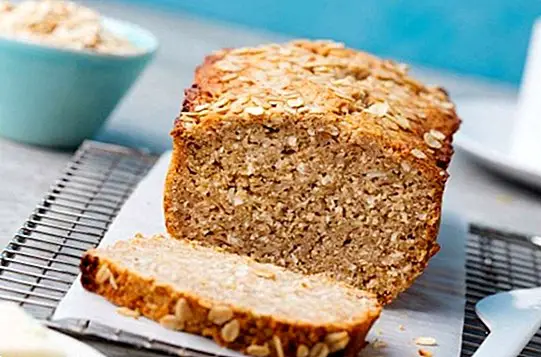Zen diet: diet and health benefits
Since ancient times, we know that both psychic and emotional health and physical health are directly associated with the feeding that we keep every day There are even certain habits, lifestyles, philosophies and teachings that maintain this premise as fundamental in its foundations.
Zen philosophy starts from the main basis that we are living in a world that is certainly contaminated, and daily we are stressed, in a permanent state in which we need certain dietary guidelines in order to maintain, or recover, our good health and of wellness.

What is the purpose of zen feeding?
Both food and zen diet in itself, it has one main objective: to provide different and diverse alternatives to get rid of the bad habits and habits acquired.
It can be considered as a spiritual and physical therapy, although the most important thing is that it consists of a healthy and healthy therapy that helps us to recover health.
It helps us in turn to keep our body and mind in balance, and behind each meal we will discover that there is a culinary "ritual" that will help us maintain the aforementioned balance.
4 Main keys to follow a Zen diet
Fundamentally there are several basic tips to keep in mind when it comes to following a Zen diet. Below we highlight what are the main keys.
1. You can eat everything, but it is advised ...
- Soup Guen maï or Guen-mai:It is an exquisite Japanese rice soup, which is cooked over low heat for three or four hours at most, and which is usually taken after breakfast, after the first meditation of the day.
- Whole grains:An adequate intake of cereals is defended, especially of whole grains. The most important ones are rice, wheat, corn and barley. In addition, it is advisable to eat stewed or boiled.
- Fresh fruits and vegetables:They are fundamental for the Zen diet. Of course, they must be natural, seasonal and fresh, and, if possible, from organic farming.
- Dairy products:It is advisable to reduce the intake of dairy products, not only milk, but also yogurts, cheeses and butters. It is advisable to replace them with green leafy vegetables, because of their high content of vitamins (vitamin A, C and B9) and minerals (calcium, iron and potassium).
- Meats:Lean meats of beef and chicken, as well as fish (always without skin) are recommended. It is the best way to obtain proteins of animal origin.

2. Simple kitchen
One of the main advantages offered by the Zen kitchen is that it stands out especially for being a type of simple cuisine, which adapts to what can be prepared and eaten at the time. Unlike other kitchens or somewhat stricter feeds, there is no direct restriction on certain foods.
The key is to be aware of those foods that are going to be eaten. That is, take into account not only what is eaten, but who has produced them and how they have been produced.
3. The importance of the work of thetenzo
In the kitchen of a Zen monastery, the importance of the role of thetenzo, the member of the community that is in charge of the kitchen, to prepare the meals that are going to consume the other people that are part of it.
It is, as we have said, a fundamental role because in each elaboration thetenzo It provides positive energy, in each cut and in each cooking. How do you get it? Maintaining what is known as "active meditation", paying full attention to the food that is being prepared.
4. Thank you
While in India when we go to buy a product in a street stall or street market, throwing the money on the table is considered an unpleasant and insulting act, in a Zen monastery refuse the food served in the bowl is seen as an act bad Education.
Therefore, in the Zen diet we also find one of the fundamental pillars of Buddhist philosophy: thankfulness. That is, to give thanks for the food that has been prepared and cookedtenzo, regardless of whether we like it or not.

What is the Zen diet?
First, the amount of food consumed varies depending on age, sex, psychological and physical condition, climate and even the season of the year in which we are.
As you can suppose, the food should be as natural as possible, and it is more advisable to opt for organic foods in the case of vegetables, and those that have not undergone hormonal treatments in foods of animal origin.
The zen feed It gives preference to foods of vegetable origin, especially the mixture of legumes with cereals, since in this way proteins with a higher quality are obtained.
Industrially manipulated foods should be reduced to the maximum since they are considered adulterated foods. This happens just like saturated fats or alcohol.
In the zen diet In addition, the consumption of tea, since in this way we get debug the organism. Especially, they emphasize the well-known one like Mu tea (that consists of a wonderful combination of 16 different plants), and the tea of Bancha (it emphasizes for being a soft tea, that does not contain teína).
You must toast the cereals before they are cooked, and the cooking itself must be very careful, since a slow cooking is the yang factor, and this heat increases the yang strength of some foods or even to help reduce the excess yin
In this case, the most recommended cereal is brown rice, since it is a balanced food. However, he is followed by rye, wheat, corn, buckwheat, oats, barley and millet. This article is published for informational purposes only. You can not and should not replace the consultation with a Nutritionist. We advise you to consult your trusted Nutritionist.



